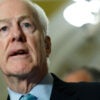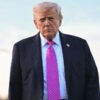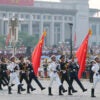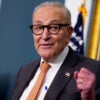At the Internet Governance Forum meeting earlier this week in Vilnius, Lithuania, Rod Beckstrom, President and Chief Executive Officer of Internet Corporation for Assigned Names and Numbers (ICANN) expressed his concern and worry about efforts by some governments to constrain the independence of the Internet at the upcoming U.N. General Assembly session.
For those who are not familiar with ICANN, the organization is a nonprofit corporation charged with regulating and managing the Domain Name System under which Internet Protocol addresses and registration of top-level domains (such as .org and .com) are assigned. “Governance” of the medium has been historically minimal and led by non-governmental entities and overseen by the U.S. government, which has exercised a light regulatory touch. This freedom allowed the Internet to grow and develop at a truly remarkable pace.
The Daily Signal depends on the support of readers like you. Donate now
However, the United Nations has sought for some time to acquire authority over ICANN and the Internet, at the behest of a number of countries who wish to tax or regulate it. Last year, the Obama administration to decided to withdraw U.S. oversight and protection of ICANN on the justification that ICANN and the Internet had become too important internationally to be overseen by any one nation and reached agreement to affirm ICANN as “independent” and “not controlled by any one entity.”
Unfortunately, that decision opened the door to U.N. interference on the basis that all nations have a stake in the medium. The Internet Governance Forum was created to “support the United Nations Secretary-General in carrying out the mandate from the World Summit on the Information Society (WSIS)” to pursue 12 goals which include strengthening and enhancing “the engagement of stakeholders in existing and/or future Internet governance mechanisms, particularly those from developing countries” and finding “solutions to the issues arising from the use and misuse of the Internet” and, of course, “proposing ways and means to accelerate the availability and affordability of the Internet in the developing world” and rallying critical resources for that purpose.
While these goals are not inherently objectionable, many U.N. member states see them as opportunities for oversight by government of the internet, censorship, and transfer of resources from developed to developing countries. These topics will arise prominently during the General Assembly discussions this fall (17th on the provisional agenda).
In his speech, Beckstrom clearly expresses concern over the possibility of U.N. governance of the Internet:
The Internet has the power to transform the human experience. It enables communication on an unprecedented scale and is woven into billions of lives around the world. Its openness, its inclusiveness, its relative lack of regulation make it a fertile field for innovation and competition, an engine for much needed economic growth.
Why mention inclusiveness? Because everyone using the Internet should and must have a voice in its governance.
If governance were to become the exclusive province of nation states or captured by any other interests, we would lose the foundation of the Internet’s long-term potential and transformative value….
Some want to bring Internet governance into the framework of intergovernmental organizations exclusively. What would that mean? Most Internet users – businesses, service providers, non-profits, consumers – would be shut out of the governance debate….
The IGF derives its strength and legitimacy from its multistakeholder composition. Bringing it into a traditional intergovernmental framework would undermine what the UN itself has been pursuing in recent years: public, private and community partnerships.
All stakeholders must make their views known to their respective governments; it is governments alone that will decide the future of this body at the UN General Assembly this fall….
Together we can ensure that the Internet’s future rests in the hands of its most important constituency: the people.
The Internet works. Let’s keep it that way.
Granting the U.N. control and regulatory oversight of ICANN and the Internet would empower non-democratic countries that oppose the right to free speech such as China and grasping, anti-market impulses like those of the European Union to impose their policy, regulatory and political priorities on what has been a very successful free medium. The Obama administration should fight to preserve and protect the independence of ICANN and the Internet in the General Assembly this fall.
Co-authored by James Gattuso.




























